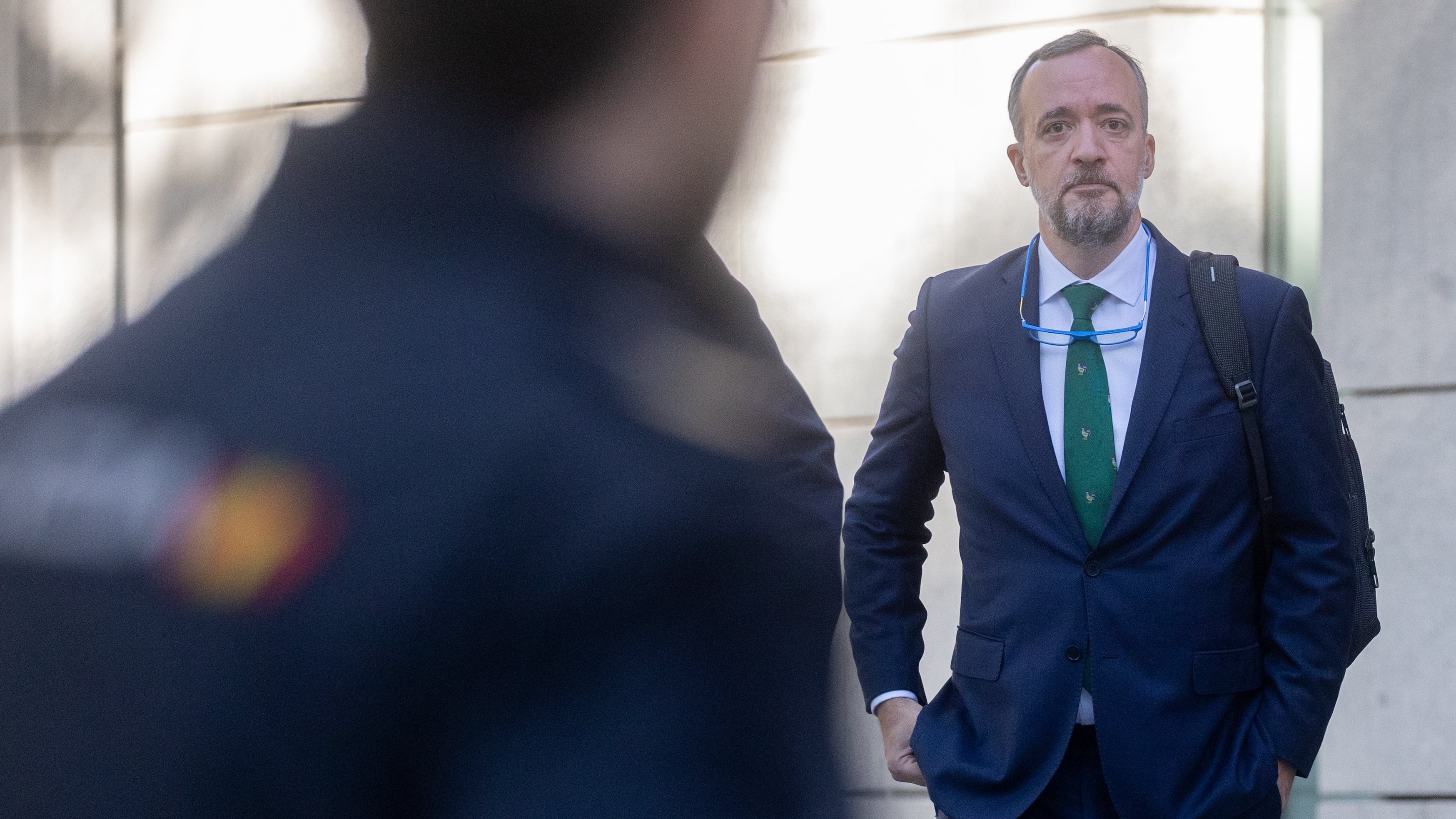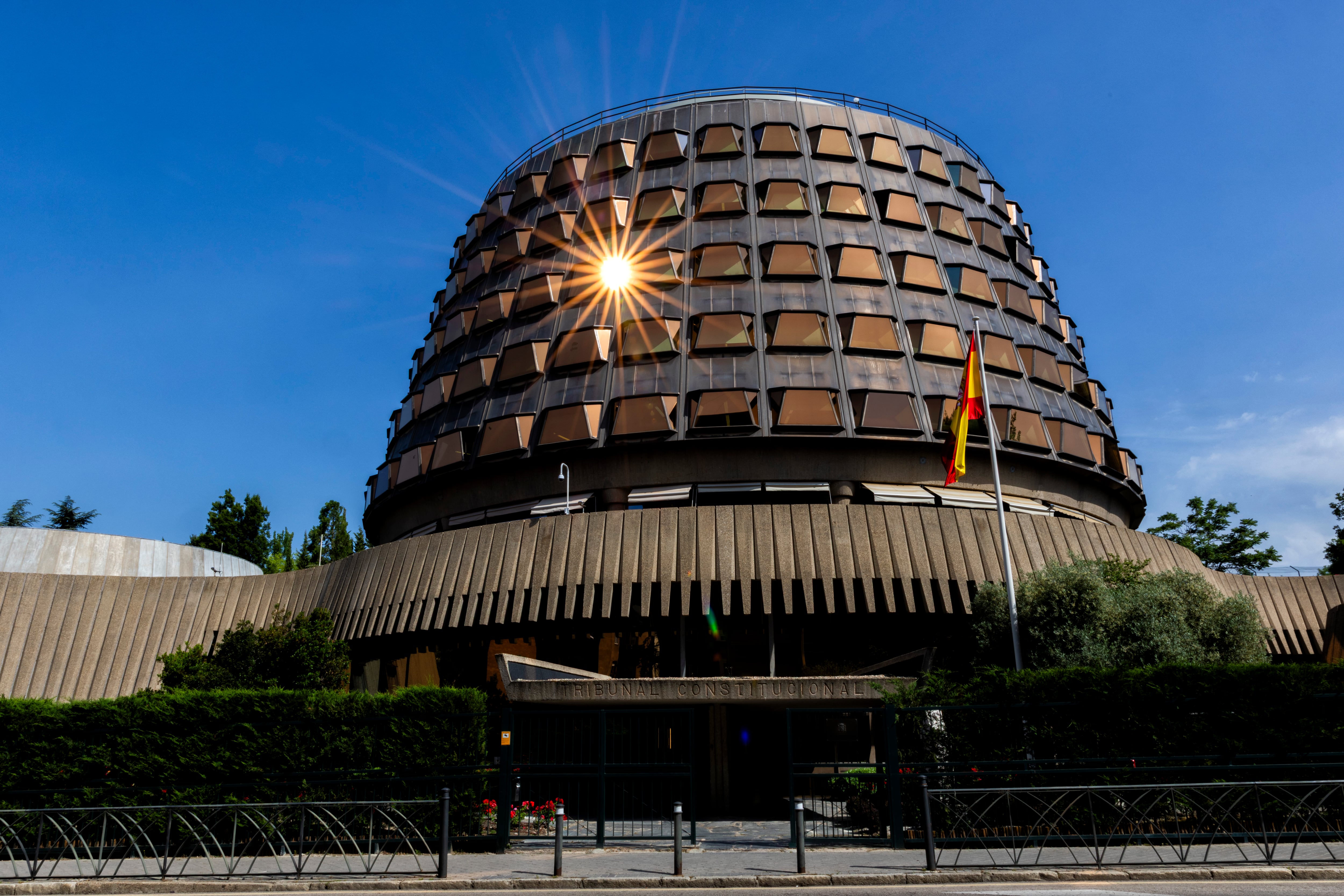The Constitutional Court will endorse the central nucleus of the Amnesty Law | Spain

The amnesty law It is fully constitutional, except for some minor details, according to the sentence presentation that will begin to study in the next few days the 10 constitutional magistrates who plan to resolve on June 24 the appeal presented by the PP. The text of the presentation elaborated under the direction of the Vice President of the Court, Immaculate Montalbán, guarantees, according to legal sources, the constitutionality of the central nucleus of the norm and, at the same time, partially estimates the resource who presented on September 9, 270 deputies and senators of the Popular Party headed by their leader, Alberto Núñez Feijóo. The sentence proposal indicates three reasons for unconstitutionality in the articles of the law and rejects the rest of the issues appealed by the PP.
On the one hand, with respect to the scope of the law, article 1 indicates that “the acts of criminal, administrative or accounting responsibility executed in the framework of the consultation held in Catalonia on November 9, 2014 and October 1, 2017, its preparation and its consequences” will be amnestified. And among those acts, he needed « those committed with the intention of claiming, promoting or seeking the secession or independence of Catalonia, as well as those that had contributed to the achievement of such purposes » and also « the actions carried out in the course of police actions aimed at making it difficult to hinder or prevent the realization of the determining acts of criminal or administrative responsibility included in this article. »
The sentence presentation finds a lack in the norm by not contemplating in amnestiable cases those behaviors of people who demonstrated against the independence process. The ruling proposal considers that this oblivion affects the equal judgment of the amnesty law, which would cause unconstitutionality by corregible omission through the judgment itself that would force to incorporate this assumption.
The appeal of unconstitutionality of the PP denounced the « creation of an area of criminal immunity that applies to certain people, while the generality of citizenship is subject to the criminal types typified in the Criminal Code. » « The principle of criminal legality, » he added, « requires general criminal laws whose factual assumptions and legal consequences are applied equally. »
Regarding the temporary scope of application, the rule establishes that the acts between November 1, 2011 and November 13, 2023 will be amnestied and adds: « Those will also be understood as the execution of the execution after that date. » The amnesty law, according to the sentence presentation, has to limit precise and concrete facts of the past, but not make a projection of the future because it would be unconstitutional. For that reason, The sentence will annul the reference to amnestiable acts after November 13, 2023.
Article 13.2 of the Law establishes “the Archive of Actions of the Court of Auditors, prior hearing of the Fiscal Ministry and the public sector entities harmed by the impairment of the flows or public effects, when these have not been opposed”. The Constitutional Court, according to the sentence presentation, imposes an interpretation according to which a hearing has to be given prior to all parties, also to the popular accusations in the accounting procedures in which they were personally.
The proposal of sentence rebates the arguments of the PP, defends that the amnesty law fits within the Constitution and the freedom of the legislator as long as it does not violate fundamental rights. In addition, it rejects that the law is arbitrary, although it admits that it is an exceptional rule because it cancels criminal consequences of facts judged and convicted by the courts.
The PP denounces in its appeal that the amnesty law had as the sole objective to achieve the seven vows of Junts that President Pedro Sánchez needed to carry out his investiture. The judgment proposal indicates that the Constitutional Court cannot investigate the hypothetical intentions or political strategies because they are extrajuridic issues, and the constitutional judgment must be abided by the statement and content of the norm, and where appropriate, to the explicit purpose and declared by the legislator.
The exposition of reasons for the amnesty law pointed out the intention of pacifying a political conflict and facilitating coexistence. The editors of the norm reflected it like this: « An adequate response more than ten years after the beginning of the independence process, when the most accused moments of the crisis have already been overcome and touches the basis to guarantee coexistence for the future (…) a necessary step to overcome the referred tensions and eliminate some. » This pronouncement makes the presentation defend that the law is not arbitrary, but pursues a reasonable purpose.
The PP denounced in its appeal that Amnesty’s law is « a singular criminal rule and, therefore, prohibited by the Constitution, in addition to violating the division of powers, the reserve of jurisdiction and effective judicial protection. »
The sentence paper will be voted in a plenary composed of 10 magistrates (four chosen at the proposal of the PP and the remaining six at the proposal of the PSOE) with two absences. On the one hand, that of the progressive Juan Carlos Campo, who decided to refrain from participating in the deliberation because as Minister of Justice (2020-2021) signed the pardon proposal of the independentistas imprisoned with an “express and generic assessment on the constitutional unfeasibility of an amnesty law”. On the other hand, the forced absence of José María Macías, conservative magistrate section by the Constitutional Court after accepting (by six votes to four) the challenge made by the Prosecutor’s Office. The alleged reason is that Macías approved during his time as a conservative member of the General Council of the Judiciary an opinion requested by the Senate on the Amnesty Law where it was pointed out that the rule for forgiveness to the leaders of the Proces It is unconstitutional. The document reached the Senate, where the PP used it as a technical support of the veto proposal that approved the Upper House on May 14, 2024. These facts, according to the Constitutional, caused an “objective loss of impartiality” of Macías.
Puigdemont’s return to Spain
The foreseeable guarantee of the Constitutional Court to the Amnesty Law will not allow, for the moment, The return of Carles Puigdemont to Spain. The Supreme interpreted that the amnestiable assumptions of embezzlement of public funds do not affect the former Catalan president. The court that judged the Proces Independence understood that Puigdemont did rich patrimonially thanks to the fact that the expenses of the referendum were paid for the budgets of the Generalitat and not of their own pocket. The Catalan leader, fled from justice, appealed before the Constitutional the interpretation that the Supreme made of the amnesty law, but this court will still take several months to pronounce on that challenge. Before you will have to resolve another 20 resources against the Amnesty Law: 14 of communities (13 governed by the PP most Castilla-La Mancha, where the PSOE governs); a matter of unconstitutionality of the Supreme, four of the Superior Court of Justice of Catalonia and one more of the Provincial Court of Madrid.




:format(jpeg):fill(f8f8f8,true)/s3/static.nrc.nl/bvhw/wp-content/blogs.dir/114/files/2022/02/heijne-bas-online-homepage-1.png)


